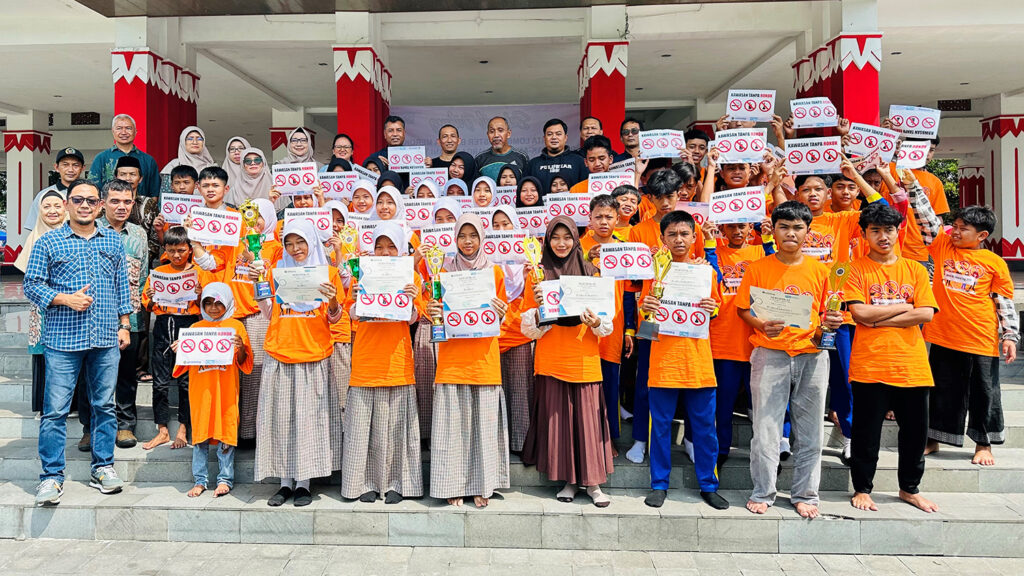
In a landmark decision aimed at curbing tobacco use, President Joko Widodo of Indonesia has signed a new government regulation calling for a series of stringent tobacco control measures across the country. Known as Government Regulation Number 28, it introduces tighter restrictions on both conventional tobacco products and electronic cigarettes, marking a significant advancement in the country’s public health policies.
Although Indonesia is not a party to the Framework Convention on Tobacco Control, the global treaty negotiated under the auspices of the World Health Organization, the government has made strides to align its tobacco control efforts with global best practices. The new regulation seeks to address the high prevalence of smoking in Indonesia, where more than 70 million adults smoke, according to the 2021 Global Adult Tobacco Survey. In addition, the 2019 Global Youth Tobacco Survey showed that 19.2% of children aged 13 to 15 are smokers, one of the highest rates in the world.
“This is a significant public health victory in the fight against the tobacco epidemic. This regulation represents a major step forward in reducing the harmful effects of tobacco and electronic cigarettes on public health,” said Dr. Tara Singh Bam, Director of Vital Strategies’ Tobacco Control Program, Singapore Office. “By tightening advertising restrictions, increasing the size of pictorial health warnings, and expanding smoke-free zones, the government shows its commitment to curbing the tobacco epidemic in Indonesia.”
Vital Strategies has supported Indonesia’s Ministry of Health in efforts to curb tobacco use by providing technical and legal support, gathering data on tobacco use, countering industry interference, and involving civil society, academics, and the media.
Continued government commitment and accountability are essential to enforcing a comprehensive ban on tobacco advertising, promotion, and sponsorship, and to align with the WHO Framework Convention on Tobacco Control.
Key components of the new government regulation include:
Monitoring Tobacco Use and Prevention Policies
Under the new regulation, Indonesian authorities are taking decisive action to monitor tobacco use and enforce preventive measures. Cities and districts are mandated to use the National Health Information System to track compliance with smoke-free regulations, ensuring that enforcement is effective at the local level. This initiative will enable better monitoring of the progress made in reducing tobacco consumption nationwide.
Protecting People from Tobacco Smoke
Smoking and vaping are prohibited in both indoor and outdoor areas of health, educational, and child care facilities, religious places, and public transport, as well as all indoor areas of public places and workplaces (e.g., malls, hotels, restaurants, government buildings, private offices). Designated smoking areas can be provided in outdoor open-air locations, far from entrances and exits of workplaces and public places.
Offering Help to Quit Tobacco Use
To support individuals who wish to quit smoking, health facilities are now required to provide counseling and pharmacological interventions. By leveraging telehealth and telemedicine platforms, these services offer accessible support to smokers seeking assistance in overcoming their addiction.
Warning About the Dangers of Tobacco
The regulation emphasizes the importance of informing consumers about the health risks associated with tobacco use. Health warnings on tobacco product packaging must now cover 50% of the surface area, up from the previous 40%. This applies to conventional cigarettes, electronic cigarettes and refillable liquid packs. The warnings must include both written and pictorial messages, effectively conveying the dangers of smoking.
In addition, tobacco and electronic cigarette packaging must clearly display nicotine content and include warnings against sales to minors and pregnant women.
Enforcing Bans on Tobacco Advertising, Promotion and Sponsorship
Outdoor tobacco advertisements are banned within 500 meters of playgrounds and educational facilities.
Broadcasting times for tobacco advertisements on television have been reduced; ads are now only permitted between 10 p.m. and 5 a.m. local time. Radio ads are limited to one minute in duration, and health warnings must be a part of all print and broadcast advertisements. Online tobacco advertising is banned on social media platforms.
Other provisions include subjecting electronic cigarettes to the same regulations as conventional cigarettes, limiting sales of tobacco products, such as the sale of single-stick cigarettes, and raising the minimum age for purchasing tobacco products from 18 to 21.
The newly adopted regulations show the government’s commitment to strengthening tobacco control in Indonesia. However, the government needs to take further action. These steps include implementing a complete ban on tobacco advertising, promotion and sponsorship, increasing taxes and prices on tobacco products, adopting plain packaging for tobacco packs, and joining the WHO Framework Convention on Tobacco Control (FCTC).
To learn more, visit the Tobacco Control Implementation Hub.
For regular updates on tobacco control, sign up for our newsletter.